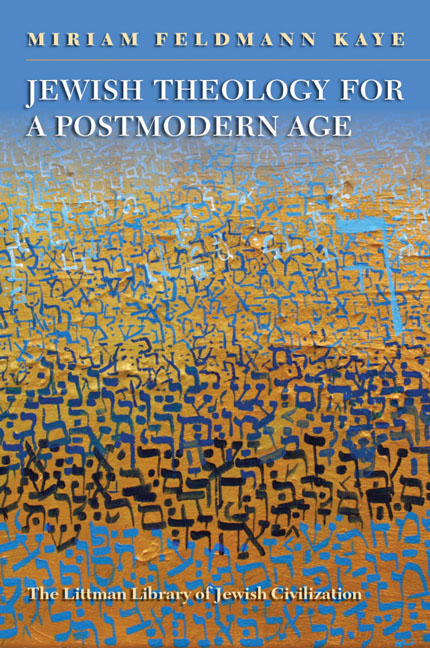3 - Revelation
Summary
THIS CHAPTER brings together the ideas raised in the two previous chapters. Having internalized the postmodern critique of religion, my aim is to explore the potential for a new theology of revelation. I postulate that each collective is responsible for determining its own truth-claims. Each community is a world unto itself in which particular understandings and usages of language are perpetuated. I therefore integrate cultural particularism by maintaining the concept of revelation at the heart of Jewish theology, while recasting it as a nonmetaphysical experience. I also tackle the problem of language through its textual manifestations. I explained in the previous chapter that postmodernists no longer understand language as referring to an objective truth. Linguistic functions or ‘signifiers’ reflect instead a communal reality. Those within the hermeneutical community are playing a game, and the meanings of the terms and expressions they use are dependent entirely on the context in which they are spoken. As such, language is used as an instrument to designate a variety of conflicting and complementary narratives rather than as a description of a metaphysical truth. The purpose of this chapter is to illustrate how this shift changes the very conception of revelation.
Ross's non-realist application of mysticism to religious truth statements, together with Shagar's denial of language's ability to refer to anything beyond itself, allows for an instrumentalization of language. This bears heavily on a certain definition and perception of revelation and its relation to the Written and Oral Torahs. I claim that although language game theory should feature prominently in a postmodern theology, it must not completely define the way in which we understand revelation. My aim is to demonstrate that expressions of divinity can reach beyond particular cultural confines.
Torah min hashamayim through a Postmodern Lens
It is necessary to unpack the concept of torah min hashamayim in order to gain an appreciation of how Shagar and Ross reinterpret it in a way that bridges the gap between their traditional orientation and their interest in postmodernism. The biblical account of divine revelation on Mount Sinai is traditionally understood as an epistemological testimony of divine engagement with humanity in which God bequeathed the Torah to the people of Israel.
- Type
- Chapter
- Information
- Jewish Theology for a Postmodern Age , pp. 99 - 124Publisher: Liverpool University PressPrint publication year: 2019



